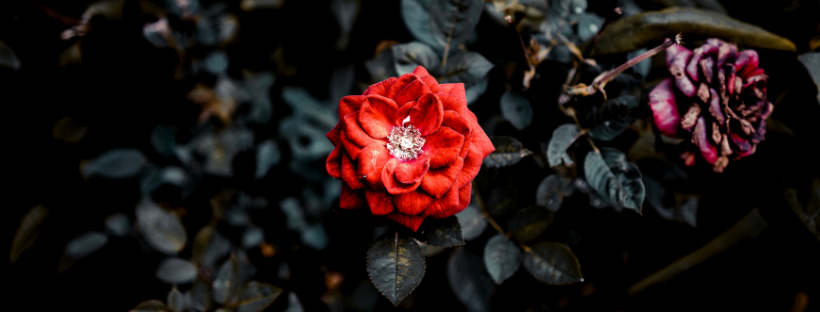
It was International Women’s Day the other day and as much as I would like to believe that a lot of progress has been made towards many feminist goals, a long way still has to be walked … Many feminists are seeking to expand the conversation around menstruation and make it less stigmatised, but I feel like a lot more has to be done especially in terms of how this stigma reinforces feelings of shame and fear.
After watching the Oscar-winning documentary “Period. End of Sentence”, I was taken aback by the stories of the multi-aged characters. They were all ashamed about their experiences with menstruation, were fearful to talk about them freely, were lacking resources to purchase any sanitary products, and were even not exposed to any education regarding the topic. Their stories transported me to my own encounter with school-provided education about menstruation. OR maybe I should say the lack of it. All I remember was an hour (maybe it was even less), during which a representative from one of the biggest feminine hygiene products focused on promoting their products rather than discussing anything related to human anatomy and biology. The company representative showed the ‘wide’ range of products they had (back then, I would like to say around 2006/7, the feminine hygiene market was not as diverse as it is now, especially where I am from. Any sort of reusable and environmentally friendly products were more or less non-existent, but there was still some variety in terms of pad composition). During that hour, we (the girls from my class and I) were shown these products, the rest of the class (the ‘boys’) had a free period during which they enjoyed a few matches of football. At the time I thought this split was normal. We as ‘girls’ knew that menstruation is our own issue that should be kept a secret from the rest of the population. However, I realize now that the split not only made the programme strictly binary but also strongly promoted parochial and patriarchal values. The session ended and we were given one sanitary pad from the brand to test out and we returned to our regular classes. However, the boys got curious about what these strange looking ‘diapers’ (as they referred to the pads) were. They started playing with them, spilling water all over them, mocking us and our use of them. As a young girl, I remember feeling ashamed having to wear a pad every month due to its perception as a symbol of disgrace. And maybe this moment solidified my viewpoint. How I wish I did not feel pressured by society to feel shame. How I wish every single kid in my class got the chance to explore both reproductive systems scientifically and socially.
It’s 2019 and looking back, I understand the errors in the educational system – from the split to who would be leading the programme to what we were taught. I can only hope that this has changed in many schools around the world and that every kid has the opportunity to be present during a session of open-minded, research-based, materially aided, and enlightened conversation about reproductive systems, periods and more. And in an ideal case, every kid would actually be part of this conversation. What I would even daringly say is that everyone should have the same amount of knowledge on the topic in order to become well-rounded individuals later on in their lives. (I am, of course, aware that such programmes exist in some parts of the world, but others are not that lucky due to a multitude of reasons such as lack of resources or any cultural reasons.)
*Disclaimer*
By sharing my story I am not trying to undermine the experiences of anyone else around the world, where access to sanitary products is difficult and expensive. Yes, the product range was limited at the time (not anymore) and I was (and still am thankfully) able to purchase such products every month, but I do remember having a few of my friends sharing with me that they were unable to afford these products. One friend had resorted to decreasing their movements and using only 1 or 2 pads per day, when we all know that this can be both unhygienic and hard to achieve. There are many countries, where feminine hygiene is considered a luxury and taxed as such. There are many places where many individuals simply cannot afford them and are obligated to enforce restrictions upon themselves whether it be skipping or completely stopping school/ work and other life commitments. I do understand I come from a position of privilege, where I have had the ability to buy myself such products. What is mind boggling though is the lack of information that seems to be persistent all over the world. Along with that lack of information is also the well-known stigma. One needs to do further research to discover whether the lack of information is a consequence of the stigma or the opposite.
The topic of periods, menstruation, reproductive system, etc. is on the ‘hush hush’. It’s as if half the population’s experiences either remain unacknowledged or are deleted. I was recently a witness to a proceeding that demonstrates exactly this shame that those who menstruate feel. A few days ago, I was at my local pharmacy getting vitamin C, when a lady walked beside me, went up to the second counter and requested some painkillers from the other pharmacists. Now, imagine that while the scene is taking place, only four people are at the pharmacy – me, the pharmacist taking care of my order, the other pharmacist and this lady looking to buy something for her pains. The pharmacist she spoke to was being a complete professional and gently asked for more information about the pain in order to help in the best possible way. At that moment, the lady became all red with embarrassment and could not really express her pain in words. So she hesitantly and quietly mumbled, “You know what kind of pain”, implying menstrual pain. I can only imagine that she felt like she could not say period pain out loud even though she was talking to a professional in front of her (or maybe she was disturbed by my presence as well?). It was astounding to see how one person is pressured by societal (maybe also personal) factors to feel ashamed of their pain in a way that they do not feel comfortable talking about it out loud to a pharmacist whose job is to help with medicine in similar scenarios. The harsh reality is that society treats the topic as a taboo, as a conversation that needs to be kept to a bare minimum. This does not sound normal when the subject is a normal bodily function. WHY does there have to be stigma? WHY does someone have to feel embarrassed to say they are in pain? Half the population in this world bleeds. Even if the rest do not, everyone should know and talk about it. Talk talk talk. And yes, many people, specifically in the ‘developed’ countries, have started embracing this free talk and using it as a source of empowerment, but we should acknowledge the fact that there are still a large amount of individuals in many communities around the world that are imposed this shame as is the case in the documentary I mentioned above.
Let me know your opinions on the topic, your experiences or if you have any constructive criticism towards my stories and viewpoints (especially in regards to terminology). I am always open to a conversation and would love to hear what you have to say!
